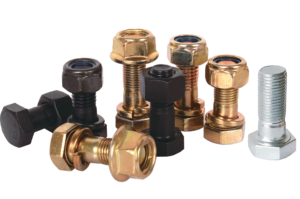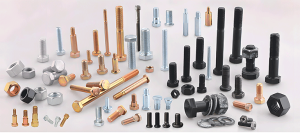Analysis of the Performance Characteristics and Application Value of Hex Socket Self-Tapping Screws
In modern industrial manufacturing and assembly processes, hex socket self-tapping screws have become the preferred choice for many engineers and designers due to their superior performance characteristics and wide range of applications. Combining the features of a hex socket and self-tapping capabilities, these screws not only efficiently connect various materials but also offer excellent stability and flexibility.
Design and Materials of Hex Socket Self-Tapping Screws
The unique hex socket design of these screws allows for effective torque transmission using tools like hex keys, preventing slippage during installation. This design ensures the fastener remains secure even under high stress. Typically made from high-quality carbon steel or stainless steel, these screws exhibit corrosion resistance and high strength, making them suitable for harsh environments and long-term use.
Application Areas of Hex Socket Self-Tapping Screws
These screws are widely used in industries such as electronics, furniture manufacturing, architectural decoration, and automotive assembly.
- Electronics: Their compact size and high strength make them ideal for assembly in confined spaces.
- Furniture Manufacturing: Their ease of installation enables efficient mass production.
- Architectural Decoration: Their ability to reliably self-tap into various materials (such as metal, wood, and plastic) makes them commonly used for fixing exterior wall panels and interior partitions.
Technical Explanation of Performance Characteristics
The self-tapping capability of these screws stems from their unique thread design, which allows them to drill and cut internal threads without pre-drilling. This feature significantly reduces assembly time, lowers installation costs, and ensures connection strength and stability. Their excellent torque performance also provides long-lasting fastening in high-vibration environments.
Future Development and Selection Recommendations
As automation and smart manufacturing continue to advance, the requirements for screws are becoming increasingly diverse and personalized. When selecting hex socket self-tapping screws, it is essential to consider the operating environment and required mechanical properties. For example, stainless steel should be preferred in situations with high corrosion resistance requirements.
Hex socket self-tapping screws, with their exceptional performance and versatility, are poised to remain a vital component in industrial and manufacturing applications, adapting to the evolving demands of the future.
Analysis of the Performance Characteristics and Application Value of Hex Socket Self-Tapping Screws
In modern industrial manufacturing and assembly processes, hex socket self-tapping screws have become the preferred choice for many engineers and designers due to their superior performance characteristics and wide range of applications. Combining the features of a hex socket and self-tapping capabilities, these screws not only efficiently connect various materials but also offer excellent stability and flexibility.
Design and Materials of Hex Socket Self-Tapping Screws
The unique hex socket design of these screws allows for effective torque transmission using tools like hex keys, preventing slippage during installation. This design ensures the fastener remains secure even under high stress. Typically made from high-quality carbon steel or stainless steel, these screws exhibit corrosion resistance and high strength, making them suitable for harsh environments and long-term use.
Application Areas of Hex Socket Self-Tapping Screws
These screws are widely used in industries such as electronics, furniture manufacturing, architectural decoration, and automotive assembly.
- Electronics: Their compact size and high strength make them ideal for assembly in confined spaces.
- Furniture Manufacturing: Their ease of installation enables efficient mass production.
- Architectural Decoration: Their ability to reliably self-tap into various materials (such as metal, wood, and plastic) makes them commonly used for fixing exterior wall panels and interior partitions.
Technical Explanation of Performance Characteristics
The self-tapping capability of these screws stems from their unique thread design, which allows them to drill and cut internal threads without pre-drilling. This feature significantly reduces assembly time, lowers installation costs, and ensures connection strength and stability. Their excellent torque performance also provides long-lasting fastening in high-vibration environments.
Future Development and Selection Recommendations
As automation and smart manufacturing continue to advance, the requirements for screws are becoming increasingly diverse and personalized. When selecting hex socket self-tapping screws, it is essential to consider the operating environment and required mechanical properties. For example, stainless steel should be preferred in situations with high corrosion resistance requirements.
Hex socket self-tapping screws, with their exceptional performance and versatility, are poised to remain a vital component in industrial and manufacturing applications, adapting to the evolving demands of the future.
 Beijing Sanjiu Juhe New Materials Co., Ltd.
Beijing Sanjiu Juhe New Materials Co., Ltd.



您好!请登录